Chiyawala
Located in Tinkune, Chiyawala was established two years ago. But the outlet’s origin can be traced back to 1956, says Ganesh Dev Pandey, its founder and a famous Nepali film director to boot. That was the year his grandfather started selling tea in Kalikot district. After that, Ganesh’s father earned his living in Butwal bazaar by doing the same business. And now, Ganesh has taken up the family mantle.
Chiyawala employees seven people, including himself. The outlet has around 200-250 daily visitors spending Rs 20,000-25,000 a day, Pandey informs. Himself a tea lover, Pandey got acquainted with various flavors and types of tea while roaming the streets of India.
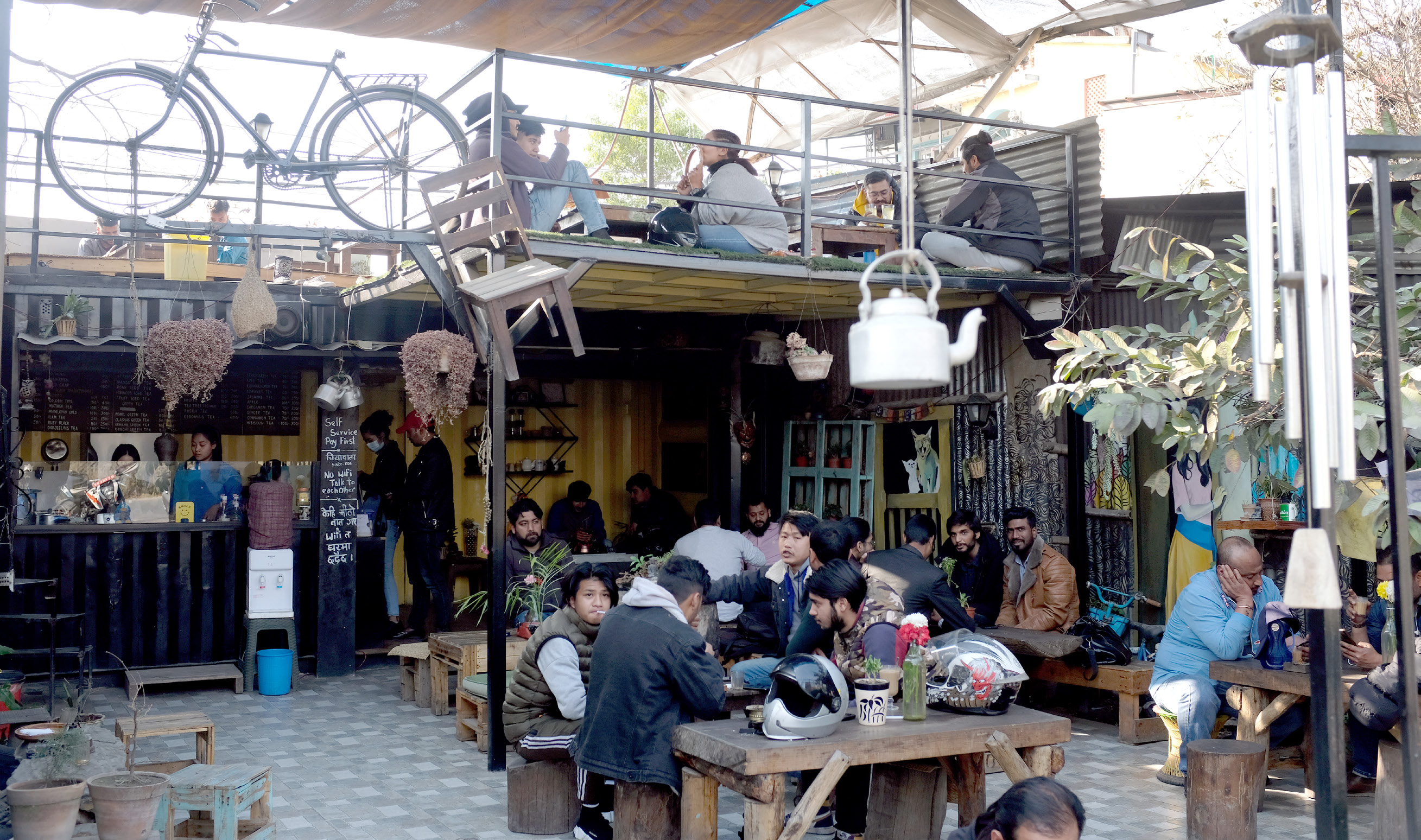
The best-seller at Chiyawala is ‘Ghanashyam tea’—a semi-sweet strong tea—named after Ganesh’s father. “We have ten different varieties of milk tea, which I created myself, but no coffee at all,” Pandey says. There’s also a tea flavor dedicated to his grandmother—a sour-and-sweet mix. Besides tea, the outlet sells cookies and magic buns, which Pandey borrowed from his mother. “In our childhood, my mother would make a bun by adding milk cream in bread. I have modified the same formula for my business,” he says. Why do people come to his place? “Tea is an addiction,” he replies.
But that is not all. Every equipment, chair and drinking table is made from reusable material. The tea tables are old TV sets and the whole shop was crafted out of a shipping container. Luring customers with creative ideas is Pandey’s business mantra.
Contact: 9801015192
Tandoori ChiyaHolic
Established around 20 days ago, Tandoori ChiyaHolic at Mid Baneshwor hosts around 140 visitors a day, who spent around Rs 10,000. Jeevan Khadka and Govinda Saud, the two founders, work there along with three other family members. After losing their jobs during the lockdown and failing to find new ones, they started looking for new opportunities. “We found the Indian concept of Tandoori Chiya (tea) appealing, and thought of starting something similar,” Khadka informs.
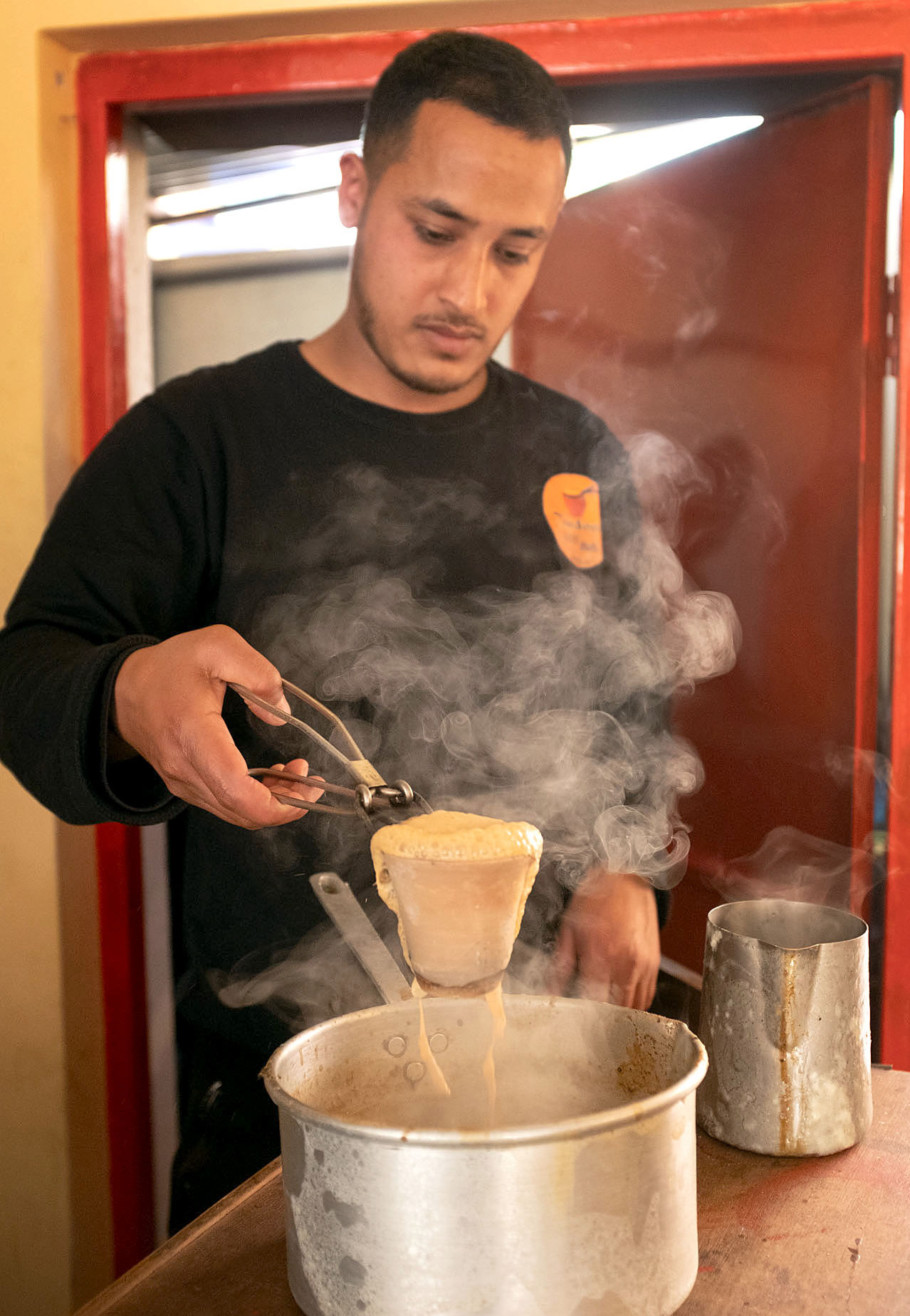
A typical customer drinks more than a cup of Tandoori tea at a sitting, according to Khadka. At Tandoori ChiyaHolic, people don’t seek options but repeat the same tea. Though the shop offers coffee as well, under a percentage of its customers ask for coffee. People don’t consume tea because they are hungry or thirsty but because they want to spend time gossiping, says Khadka.
Tandoori tea’s specialty is the clay flavor—clay’s smell and taste. Unlike normal tea, Tandoori tea is made in clay cups. A big clay cup is heated in the oven until red-hot. Then hot tea is poured into the red cup. Finally, the tea is transferred to and served in other smaller clay cups. The piping-hot tea absorbs the flavor of clay to make for a distinct taste.
Contact: 9862818173
Dariwala Chiya
Opened on 19 November 2019 and located at Mid Baneshwor, the small establishment of Dariwala Chiya is famous among youths. The place witnesses a daily average of 100 customers who spend around Rs 4,000, informs Pradeep Rawal, the owner. The Covid-19 pandemic hit the shop hard and forced it to shift to a new and temporary establishment in which they currently run. Before the pandemic, business used to be as high as Rs 10,000 a day.
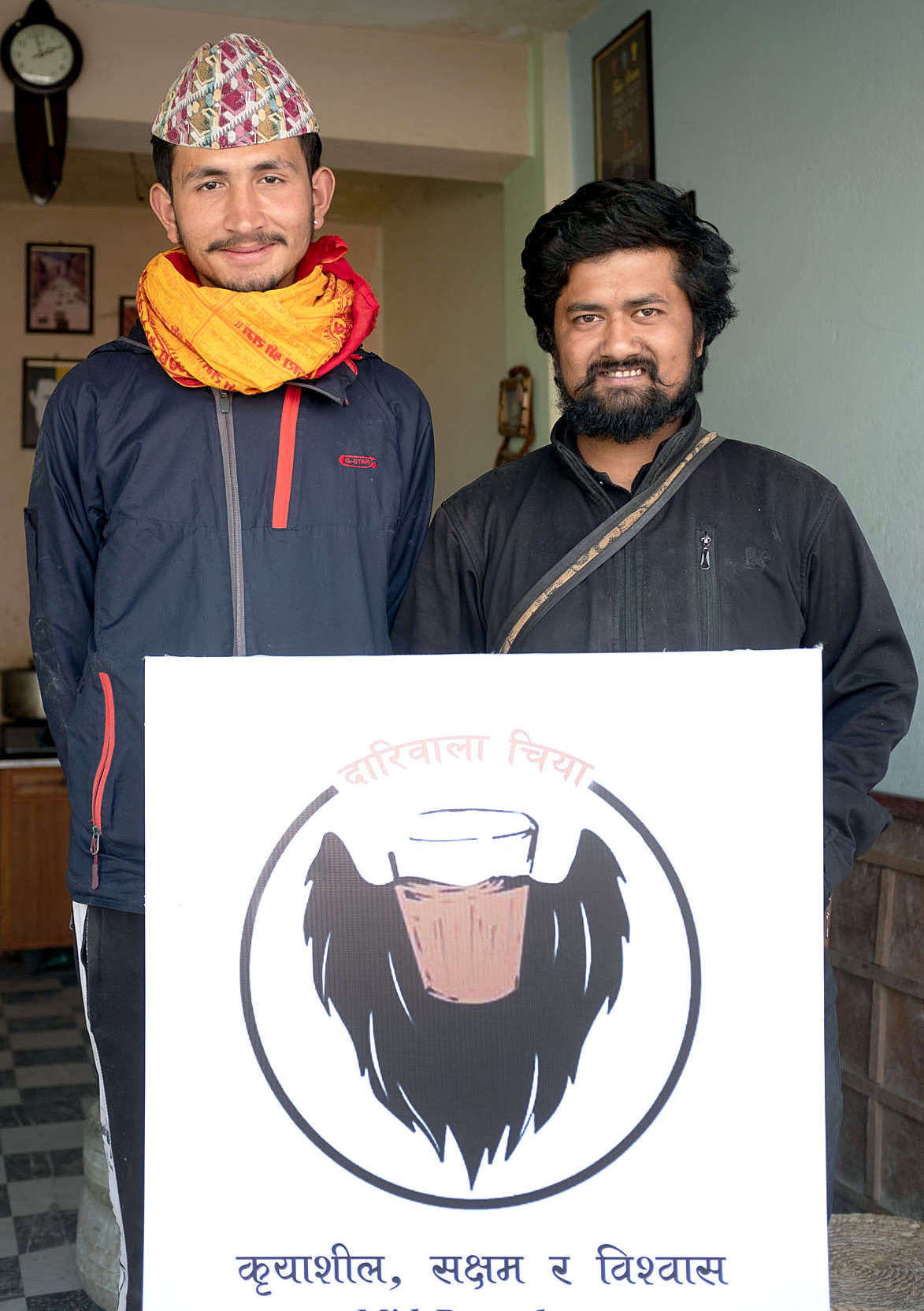
The inspiration for the place was Mama’s Tea at Basantapur, where Rawal was a regular visitor. “It was the perfect example of how you could make decent money even with a lowish investment,” he adds. Why Dariwala Chiya? Well, let’s just say Rawal is fond of beards of all kind. Dariwala Chiya does not include coffee options as “coffee can never match tea”.
You can order hot lemon tea, black tea and milk tea. The focus, says Rawal, has always been on creating a distinct taste for Dariwala Chiya. Tea ingredients thus vary, according to seasons. For example, during the winter, a special mix of cloves, black paper and cardamom maybe added to your cuppa, he informs. Tea is the only item available at his outlet.
Contact: 9845997285
Chiya Ghar
Chiya Ghar has outlets in Pepsicola, Kumaripati, and Bhimsengola and a franchise in Putalisadak. Chiya Ghar, Bhimsengola was established around four years ago and now has 14 staff, informs Arjun Limbu, the supervisor. “Around 1,000 customers visit a day, contributing to an average income of Rs 40,000-50,000,” says Limbu.
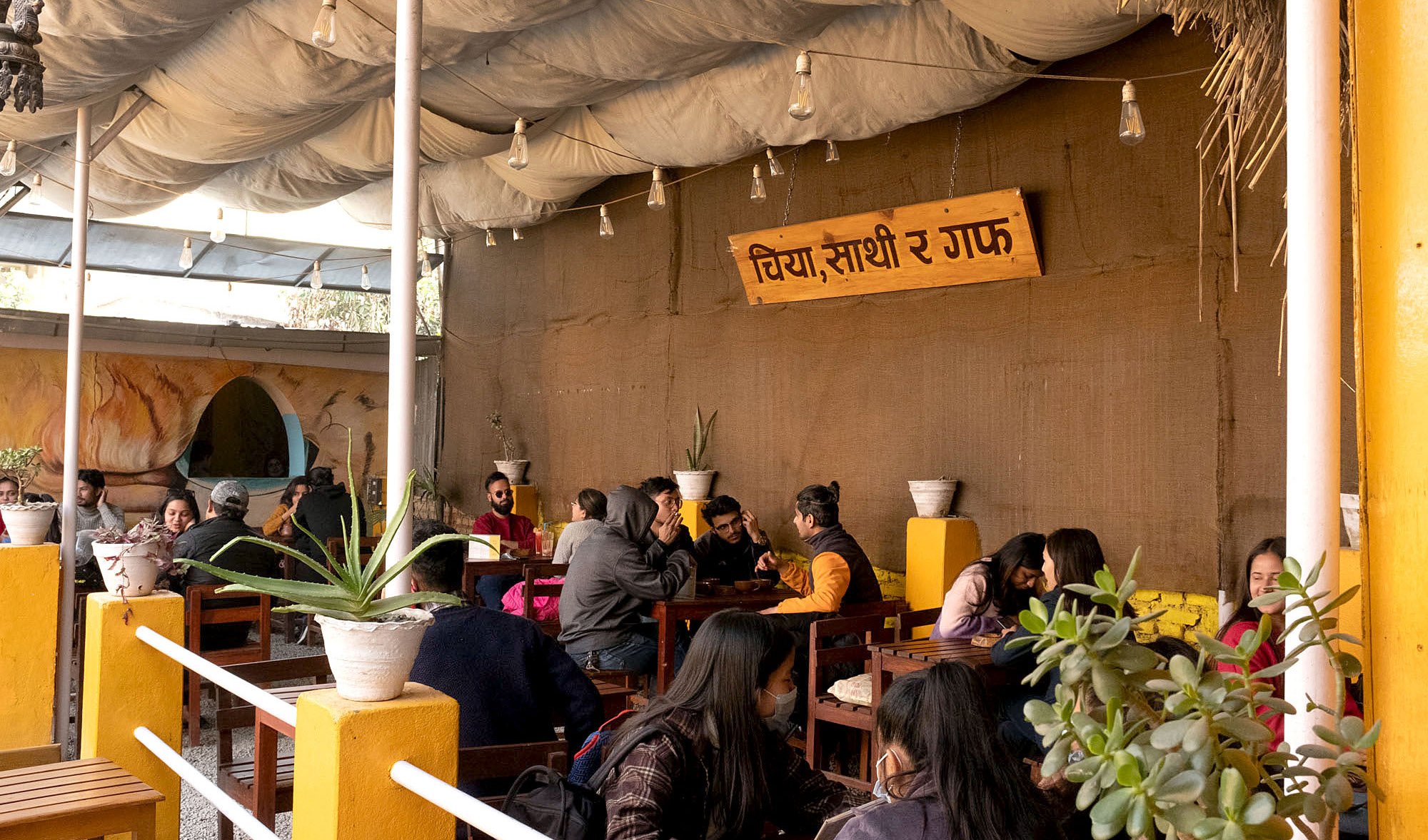
Most customers come to Chiya Ghar for the Matka tea. Next most popular option is Masala Milk tea, which is spicy, the taste of cardamoms and cloves.
Tea is made by using regular utensils but served in clay cups. The serving in clay cups give the tea a distinct earthy aroma.
Contact: 9801970715
Bamboo Tea at Bamboo Biryani
With a daily visitor-count of 150, most come to Bamboo Biryani, Ratopul for its famous Bamboo Tea. Though the place specializes in biryani, Bamboo Tea is its bestseller. Momos are the other famous offering.
Milan Regmi and Bibash Kafle were running ‘Mati House’ where they sold cooked items in clay utensils. “If we can cook in clay, we thought, why don’t we do so in bamboo?” Regmi says. “Only after a lot of effort and practice have we perfected cooking in bamboo,” Regmi explains.
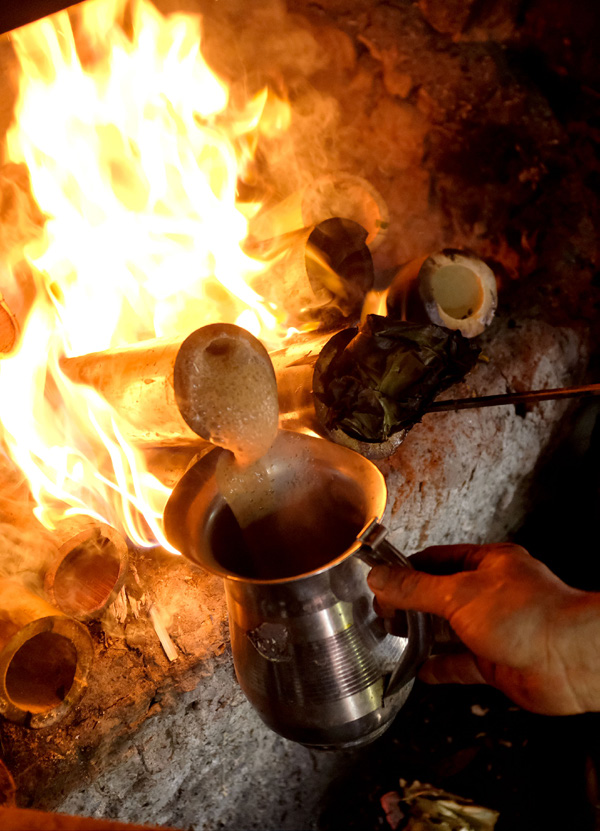
There has been no shortage of curious visitors who want to have a sip. Bamboo tea cools fast and so you drink it fast. The tea smells like a young bamboo shoot. The preparation time for bamboo tea is 30 minutes; the tea, you see, has to boil inside the bamboo.
Contact: 9848321880











